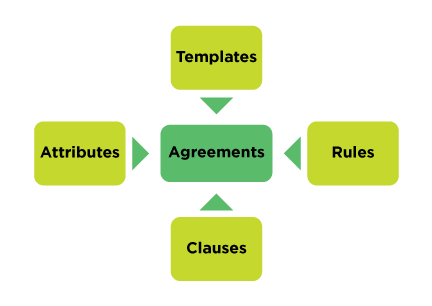(Created page with " = Overview of ICM = Icertis Contract Management (ICM) is a very robust and powerful cloud-based contract management system designed for global enterprises. Contract man...") |
(No difference)
|
Revision as of 04:52, 13 September 2020
Contents
Overview of ICM
Icertis Contract Management (ICM) is a very robust and powerful cloud-based contract management system designed for global enterprises. Contract management or administration is the management of agreements and contracts with customers, vendors, partners or any stakeholders of an organization. It is the process of systematically and efficiently managing contract creation, execution and analysis for maximizing financial and operational performance and minimizing risk.
ICM uses a simplified workflow that is easy to use and highly configurable. Icertis understands the need to analyze and minimize contract related risk and empowers businesses to effectively manage compliance, enhance efficiency and lower costs.
Key capabilities of ICM include:
- Create enterprise-wide contracts: Powerful configuration capabilities allow you to manage sell-side, buy-side, corporate, HR and a whole host of other contracts - all from a single platform.
- Rules based execution: The built-in and strong business rules capabilities enable you to author, approve, execute, manage the entire contract life cycle and automate parts of it.
- Enterprise integration: Connect with other enterprise systems to seamlessly exchange contract data and terms.
- Best-in-class intuitive user interface.
- Risk and Compliance: Leverage strong approval and review processes to enable effective contract compliance and risk management.
- Support Multi-party agreements: Manage all contracts from a single system.
Elements of an Agreement in ICM
An Agreement in ICM is based on these main concepts:
- Template is a predefined format that gets used for a given agreement. It consists of the text that is relevant to the type of agreement being created. Templates in ICM are used to organize clauses and give a certain structure to all the attributes.
- Attribute can be defined as a variable or placeholder for the actual data for the agreement. This data changes for each agreement. For example, [Company Name] and [Legal Address] can be attributes that will be replaced by the actual name and address of the company the agreement is being signed with. These attributes are defined in the Contract Types and create a structure of your agreement.
- Clauses contain the terms and conditions of the agreement. For example, the payment terms will be 45 days from the date of invoice. Clauses can be rule or attribute based.
- Rules help automate the workflow and define conditions that must be met for an agreement to get executed and stay in force. They enforce specific roles for certain users and comply with predefined business conditions. For example, if the payment is not received within 45 days of the date of the invoice, a 10% penalty on the outstanding amount will be levied.
- Approvers and signatories are an integral part of creating an agreement and are rule based. The rules determine who must approve and sign the agreement throughout it's life cycle.
This figure shows these building blocks of an Agreement in ICM:
Support Information
Every effort has been made to ensure the completeness and the accuracy of the contents in this Help. If you have comments, ideas, suggestions or questions that are not addressed here, let us know at icm-support@icertis.com.
About this Help
This Online Help is written for users who are involved with any part of the contract management process and related activities. It contains videos, diagrams and detailed expalanation of all the ICM features.
